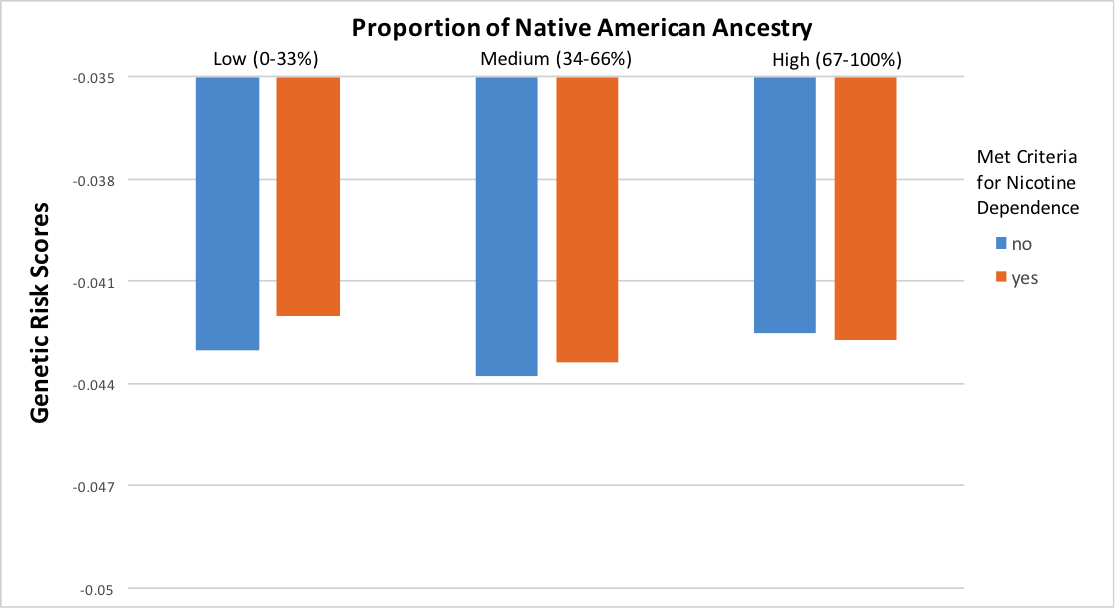Research suggests that specific genes increase risk for smoking. However, this research used samples mostly with European ancestry, so the findings are not necessarily generalizable to people with other ethnic backgrounds. This week, as a part of the Special Series on Addiction, Resilience, and Recovery within Tribal Communities, ASHES reviews a study by Jacqueline Otto and colleagues that examines genetic risk for smoking behavior among a sample of Native Americans from eight different tribes.
What is the research question?
Are the genetic risk factors that predict smoking behavior among people with European ancestry associated with nicotine dependence in a Native American population?
What did the researchers do?
The researchers recruited 288 participants from eight different Native American reservations1. The researchers measured participants’ DSM-IV criteria for nicotine dependence. Next, they analyzed the participants’ ancestry and genetic risk factors by taking blood samples. They determined the percent of Native American ancestry for each participant, and calculated each participant’s genetic risk score for smoking behaviors based on the genes previously identified as predictive.
What did they find?
The researchers found that across all participants, the relationship between genetic risk factors and nicotine dependence depended on percent of Native American ancestry. Then, they divided the participants into 3 groups: low, medium and high Native American ancestry. For those who had low Native American ancestry, their genetic risk scores were positively associated with nicotine dependence, as we would have expected from the previous findings. However, the researchers found no relationship between genetic risk scores and nicotine dependence among those with high Native American ancestry (Figure). The researchers did not examine the medium group on its own.

Figure. Genetic risk scores among participants who met or did not meet criteria for nicotine dependence, as a function of proportion of Native American ancestry. In past work, using mostly participants of European ancestry, less negative genetic scores indicate greater risk for smoking. Figure adapted from Otto et al. 2016. Click image to enlarge.
Why do these findings matter?
European ancestry is overrepresented in many large scale genetic studies. The current research demonstrated that genetic risk for smoking behaviors can differ depending on ancestry such as Native American heritage. This study reminds us of the importance of diversity within research samples. More diversity will lead to results that better represent the population as a whole, not just the majority.
Every study has limitations. What about this one?
Native American communities are heterogeneous. It might be interesting to examine these patterns separately for Native American communities, rather than lumping them together. Future work that included bigger samples from each community might be positioned to do this.
For more information:
For information about smoking and ways to quit visit our First Steps to Change here. The Indian Health Services provides information for patients here. For additional tools, please visit the BASIS Addiction Resources page.
— Alec Conte
What do you think? Please use the comment link below to provide feedback on this article.
________________
1Participants had to be at least 1/16th Native American and between the ages of 18 and 82 years old.




